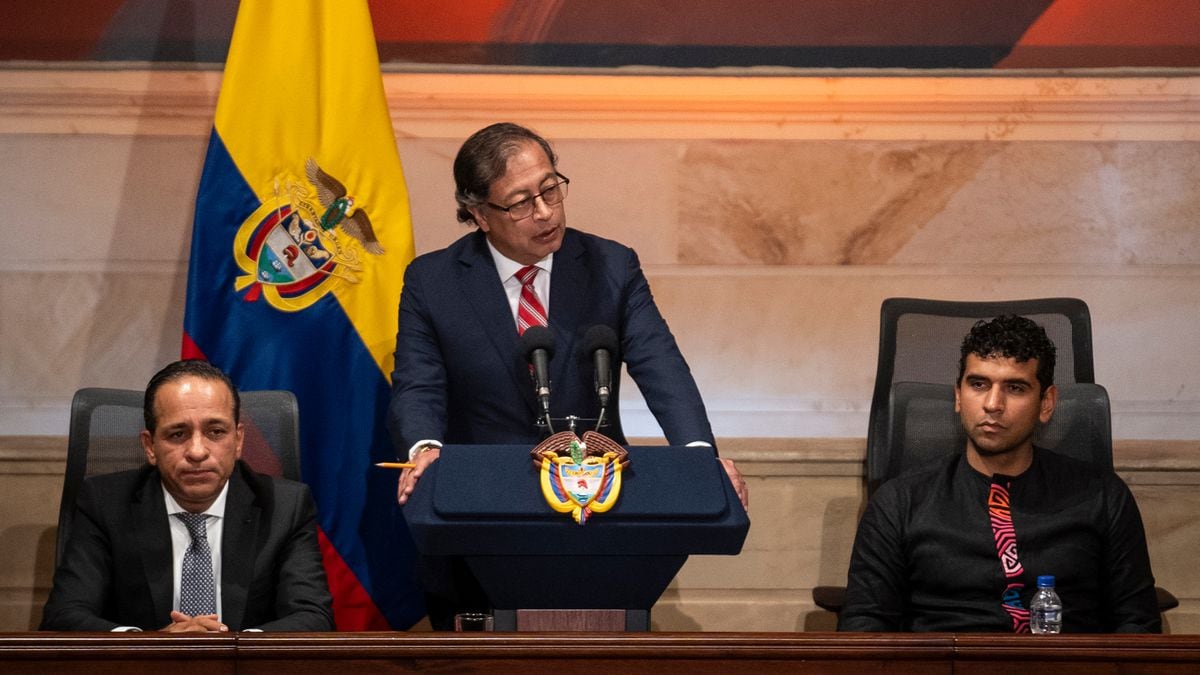The dispute over France's pension reform is escalating.
Despite the reforms that have been passed, the government is stuck in a crisis.
Can President Macron still save the situation?
Paris - A government on the ground, a population on the barricades: The dispute over the unpopular pension reform is becoming a political crisis in France.
For almost a week now, the garbage cans have been burning at night when angry groups of people, whose anger at the center government and its reform is venting itself with full force, roam the streets.
President Emmanuel Macron and his troops are now getting together for consultations and want to flee to the front.
But can they calm things down or are they stuck in a dead end?
Narrowly survived the vote of no confidence
After the government's bang on Thursday, when it decided at the last minute to bring the gradual increase in the retirement age through the National Assembly without a vote, the showdown in Parliament followed on Monday.
The government only narrowly survived a vote of no confidence tabled by the opposition.
Nine votes separated her from her case and that of pension reform.
Now, at the latest, Prime Minister Élisabeth Borne and Macron must be asking themselves how things can continue.
Borne failed hopelessly in her search for a compromise in Parliament.
Their deal with the conservative Républicains, whose deputies were supposed to provide the government with the missing votes in the National Assembly, was ultimately futile.
On the one hand, the leader of the Conservatives does not have his own troops under control, on the other hand, Borne was unable to convince given the increasing pressure from the streets.
France has been discussing pensions for months.
The cash register is heading for a billion-dollar hole, as official forecasts show.
To plug it, Macron wants people to work longer and deposit longer.
The retirement age is to be gradually raised from 62 to 64, and the time it takes to pay in full for a full pension is to increase more quickly.
Although the reform has been passed, the bickering does not end there.
The anger gradually built up
Even if a large part of the population rejected the project from the outset, anger only gradually brewed.
The center government communicated inconsistently and used tons of tricks to push through its reform.
She packaged the reform in a budget text, shortened the debate time with an accelerated procedure, and obtained a block vote in the Senate.
The high point came last Thursday.
At the last minute, the government decided not to let the National Assembly, in which a majority was uncertain, vote on the text in the first place.
For the already upset French, that was the straw that broke the camel's back.
People in all corners of the country spontaneously took to the streets, demanding the reversal of the reform, the resignation of the government and the resignation of the president.
But all three seem unlikely.
For Macron to suddenly abandon the reform after all the trouble of the past few weeks - unthinkable.
It would be a failure for him from which he could not recover.
After all, the reform is considered the most important project of his second term, after his attempt to reform the pension system failed in his first term.
Throwing in the towel is out of the question for him anyway.
Troubled Prime Minister
However, it is still too early for the government to resign.
Undeniably, Borne is ailing.
In the case of the government's most important project, she was unable to convince either the population, the trade unions or the parliament.
The centre-camp does not have its own majority in the National Assembly and cannot rely on the conservatives.
With a "keep it up" the government threatens to slip from design to administration.
But Macron should still stick to Borne.
The fight for the reform is not over with the appeal to the Constitutional Council.
Changing the woman who fought the battle for him isn't going to do him any good.
What's more, Borne is only the second French prime minister.
According to Macron, Borne should certainly not fall short of the short term of office of her predecessor Édith Cresson of almost eleven months in the 1990s, as he likes to present himself as an advocate of equality.
Borne could therefore remain in her post at least until the beginning of April.
In the long run, however, Macron must be keen to start a new chapter after the loss of reputation and the anger that has erupted - presumably with a refreshed government.
First of all, he, who has been conspicuously staying in the background recently, now wants to come out of cover and give a television interview on Wednesday afternoon.
The President is probably hoping to appease angry tempers before new strikes and mass protests sweep the country on Thursday.
dpa






